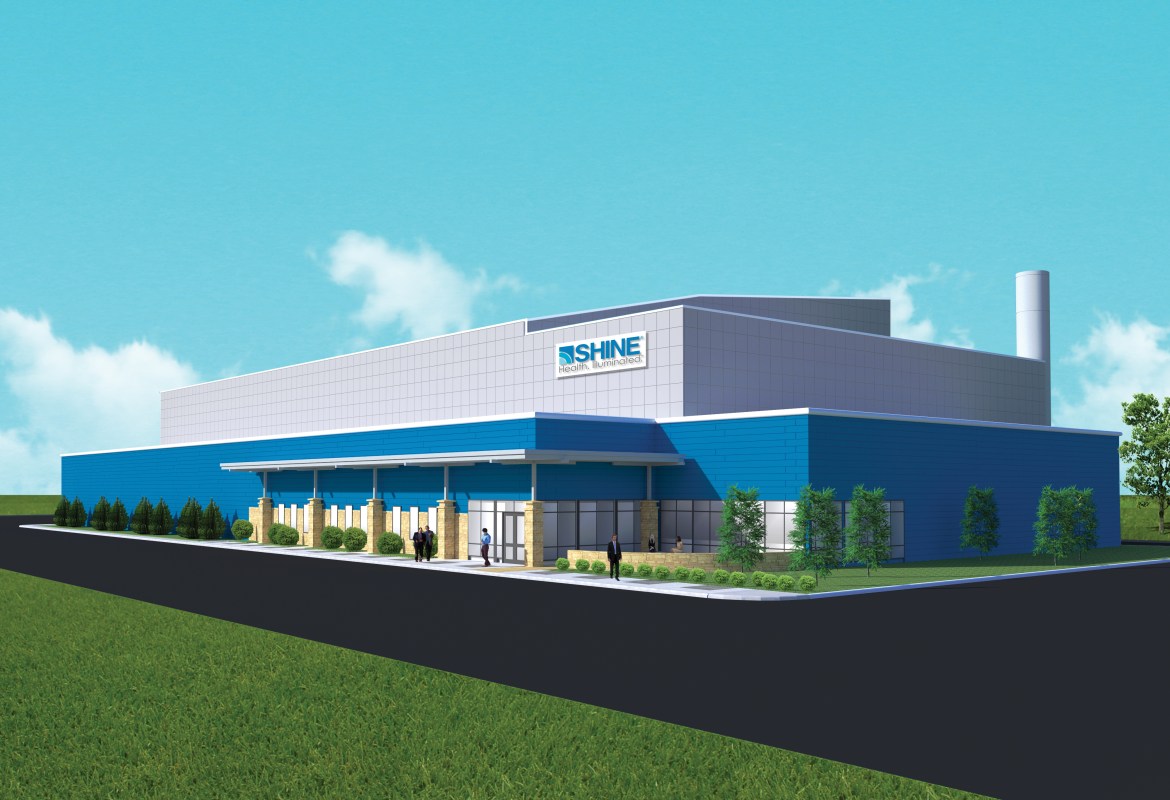SHINE’s isotope production building, called the Chrysalis, under construction in October 2022. (Photo: SHINE)
The Nuclear Regulatory Commission has issued its final safety evaluation report (SER) related to the operating license application for SHINE Technologies' large-scale medical isotope production facility, known as The Chrysalis, in Janesville, Wis. The SER documents the results of NRC staff’s technical and safety review of SHINE’s application. SHINE announced the NRC’s decision on February 27.
A record of decision concerning the proposed issuance of the operating license will be published by the NRC at a future date.
SHINE’s Chrysalis production building, under construction in October 2022. (Photo: SHINE)
The Nuclear Regulatory Commission has issued the final supplemental environmental impact statement (EIS) for SHINE Technology’s application for a license to operate a medical isotope production facility in Janesville, Wis.
SHINE’s isotope production building, called the Chrysalis, under construction in October 2022.
In a former farm field just outside the historic town of Janesville in south-central Wisconsin, a large concrete-and-steel building is taking shape. Dubbed the Chrysalis, the building will eventually house eight accelerator-based neutron generators, which start-up company SHINE Technologies will use to produce molybdenum-99. As the precursor to the medical radioisotope technetium-99m, Mo-99 is used in tens of millions of diagnostic procedures every year, primarily as a radioactive tracer.
At the heart of the Chrysalis will be the high-flux neutron generators, being supplied by SHINE’s sister company, Phoenix. The compact accelerators use a deuterium-tritium fusion process to produce neutrons, which in turn induce a subcritical fission reaction in an aqueous low-enriched uranium target (19.75 percent uranium-235) to produce Mo-99.
A rendering of the SHINE medical isotope production facility planned for construction in Veendam, the Netherlands. (Image: SHINE)
SHINE Europe, a subsidiary of Wisconsin-based SHINE Technologies, will work with the Netherlands’ University Medical Center Groningen (UMCG) and Delft University of Technology (TU Delft) to produce a variety of terbium isotopes for use in nuclear medicine under a grant proposal approved by the Dutch government on October 17.



